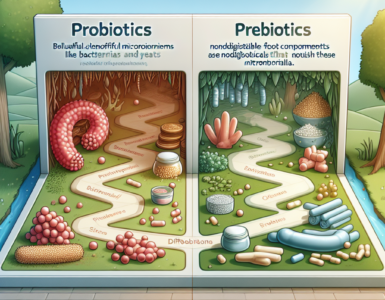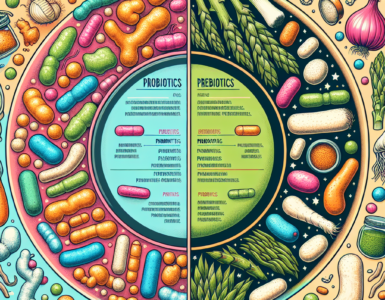Green tea has been enjoyed for centuries, and with good reason. It is not only a delicious beverage, but it also has a range of health benefits. From increasing metabolism to reducing the risk of cancer, green tea offers many advantages. In this article, we will explore the history, nutritional components, health benefits, and different types of green tea.
A Brief History of Green Tea
Green tea has its origins in China, where it has been consumed for thousands of years. The legend goes that in 2737 BC, Emperor Shen Nong discovered green tea when some tea leaves accidentally blew into his boiling water. He enjoyed the drink so much that he began to promote its consumption among his people.
Green tea was not only enjoyed for its taste, but also for its medicinal properties. It was believed to have a calming effect on the mind and body, and was often used by monks to aid in their meditation practices. In addition, green tea was used to treat a variety of ailments, including headaches, indigestion, and even depression.
Origins in China
Green tea was first brewed during the Tang Dynasty (618-907 AD) and in the Song Dynasty (960-1279 AD), it became a popular beverage among the people. During this period, green tea was also used for medicinal purposes. The Chinese believed that green tea had the power to cleanse the body of toxins and promote overall health and well-being.
In addition to its health benefits, green tea also played an important role in Chinese culture. It was often served during important ceremonies and was seen as a symbol of hospitality and respect.
Spread to Japan and Beyond
In the 12th century, a Japanese Buddhist monk named Eisai introduced green tea to Japan. He believed that green tea had the power to cure diseases and prolong life. Over time, green tea spread to other parts of the world, including Korea, Vietnam, and India.
Today, green tea is enjoyed by millions of people around the globe. It is still revered for its health benefits, including its ability to boost the immune system, improve brain function, and lower the risk of certain types of cancer. Whether you prefer it hot or iced, green tea is a delicious and refreshing beverage that has stood the test of time.
Nutritional Components of Green Tea
Green tea is a popular beverage that has been consumed for centuries due to its many health benefits. It is made from the leaves of the Camellia sinensis plant and is rich in several nutritional components that can positively impact your health. Let’s take a closer look at some of them:
Catechins
Catechins are a type of flavonoid that are abundantly found in green tea. They function as antioxidants and have been shown to have anti-inflammatory properties, reducing the risk of chronic diseases such as cancer, cardiovascular disease, and diabetes. The catechins in green tea are particularly potent and have been shown to be more effective than those found in black tea due to the way they are processed.
One of the most well-known catechins found in green tea is epigallocatechin gallate (EGCG). EGCG has been extensively studied for its potential health benefits and has been shown to have anti-cancer properties. It may also help to improve brain function and aid in weight loss.
L-theanine
L-theanine is an amino acid that is present in green tea. It has been known to improve mood, reduce stress levels, and increase alertness. This combination of caffeine and L-theanine is what gives green tea a unique, calming effect. L-theanine has also been shown to have neuroprotective properties, which may help to prevent age-related cognitive decline.
Vitamins and Minerals
Green tea contains vitamins such as vitamin C, vitamin B2, and vitamin E. It also has minerals such as potassium, magnesium, and calcium. While the amounts of these vitamins and minerals may be small, they still contribute to the overall nutritional value of green tea.
Vitamin C is an important antioxidant that helps to protect your cells from damage. Vitamin B2, also known as riboflavin, plays a key role in energy production and helps to maintain healthy skin and eyes. Vitamin E is another antioxidant that helps to protect your cells from damage and may help to prevent chronic diseases such as heart disease and cancer.
Potassium is an essential mineral that helps to regulate blood pressure and maintain a healthy heart. Magnesium is important for bone health and helps to regulate muscle and nerve function. Calcium is necessary for strong bones and teeth and also plays a role in muscle function and blood clotting.
Overall, green tea is a nutritional powerhouse that can provide a range of health benefits. Whether you drink it hot or cold, it’s a great way to stay hydrated and support your overall health and well-being.
Health Benefits of Green Tea
The health benefits of green tea are numerous and varied. Let’s take a look at some of the most notable ones:
Antioxidant Properties
Green tea is rich in antioxidants, which are compounds that protect against cellular damage caused by free radicals. By drinking green tea, you can help prevent aging, chronic diseases, and cancer.
In fact, one study found that green tea contains up to 10 times more antioxidants than fruits and vegetables. These antioxidants, including epigallocatechin gallate (EGCG), have been shown to have powerful effects on the body.
For example, EGCG has been shown to reduce inflammation, which is a major contributor to many chronic diseases such as arthritis, diabetes, and heart disease.
Weight Loss and Metabolism Boost
Green tea has been shown to boost metabolism, which can help with weight loss. The combination of caffeine and catechins in green tea can help burn fat and increase energy expenditure.
Furthermore, green tea has been shown to reduce appetite and increase satiety, which can help you consume fewer calories throughout the day.
One study found that drinking green tea before exercise can increase fat burning by up to 17%, making it a great addition to any weight loss program.
Heart Health
Green tea has been shown to improve heart health by reducing bad cholesterol and total cholesterol levels. It also helps regulate blood pressure and prevents blood clots, which can reduce the risk of heart attacks and stroke.
In addition, green tea has been shown to improve the function of the endothelial cells that line the blood vessels, which is important for maintaining good cardiovascular health.
Brain Function and Mental Health
The combination of caffeine and L-theanine in green tea can improve brain function and mental health. It has been shown to increase alertness, improve memory, and reduce stress levels.
One study found that drinking green tea can improve cognitive function, particularly in the areas of working memory and attention.
In addition, green tea has been shown to have a calming effect on the mind and body, making it a great choice for reducing stress and anxiety.
Cancer Prevention
Green tea has been shown to reduce the risk of cancer, particularly breast cancer, prostate cancer, and colorectal cancer. Its antioxidant properties can help protect cells from DNA damage and prevent the growth of cancer cells.
Furthermore, green tea has been shown to inhibit the formation of new blood vessels, which is important for preventing the growth and spread of tumors.
Dental Health and Oral Hygiene
The catechins in green tea have been shown to inhibit the growth of bacteria in the mouth, reducing the risk of tooth decay, bad breath, and gum disease. Green tea also contains fluoride, which helps strengthen teeth and prevent cavities.
In addition, green tea has been shown to reduce inflammation in the gums, which is important for maintaining good oral health.
Overall, green tea is a delicious and healthy beverage that provides numerous health benefits. Whether you’re looking to improve your heart health, boost your metabolism, or reduce your risk of cancer, green tea is a great choice.
Different Types of Green Tea
Green tea is a popular beverage that has been enjoyed for centuries. It is made by steeping tea leaves in hot water, which releases the flavor and nutrients of the tea. There are many different types of green tea, each with its own unique flavor and health benefits. Here are some of the most popular types of green tea:
Sencha
Sencha is the most popular type of green tea in Japan. It is made by steaming tea leaves and then drying them. This process gives sencha its delicate flavor and aroma. Sencha is also rich in antioxidants, which are known to have many health benefits. Some studies have shown that antioxidants can help reduce the risk of heart disease, cancer, and other chronic illnesses.
Sencha is also a good source of caffeine, which can help increase alertness and improve cognitive function. Many people enjoy sencha as a morning or mid-day pick-me-up.
Matcha
Matcha is a powdered form of green tea that is ground from whole tea leaves. It has a bright green color and a slightly bitter taste. Matcha is high in antioxidants and can be used in cooking as well as in tea.
Matcha is also a good source of L-theanine, an amino acid that is known to promote relaxation and reduce stress. Some studies have shown that L-theanine can help improve mood and cognitive function, making matcha a popular choice for people who want to stay focused and alert throughout the day.
Gyokuro
Gyokuro is a high-quality green tea that is grown in the shade. The leaves are hand-picked and have a sweet, delicate flavor. Gyokuro is rich in L-theanine and is often considered the highest quality green tea.
Gyokuro is also a good source of catechins, a type of antioxidant that is known to have many health benefits. Some studies have shown that catechins can help reduce the risk of heart disease, cancer, and other chronic illnesses.
Genmaicha
Genmaicha is a green tea that is blended with roasted brown rice. The rice gives the tea a nutty, popcorn-like flavor and aroma. It is often enjoyed in the afternoon or after dinner.
Genmaicha is also a good source of fiber, which can help promote digestive health and reduce the risk of constipation. It is also low in caffeine, making it a good choice for people who want to avoid the stimulating effects of caffeine.
Houjicha
Houjicha is a green tea that has been roasted over charcoal. The roasting process gives the tea a toasty, caramel-like flavor and a reddish-brown color. Houjicha is low in caffeine and is often consumed in the evening.
Houjicha is also a good source of antioxidants, which can help reduce the risk of chronic illnesses. Some studies have shown that antioxidants can also help improve skin health and reduce the signs of aging.
Overall, green tea is a healthy and delicious beverage that can be enjoyed in many different forms. Whether you prefer sencha, matcha, gyokuro, genmaicha, or houjicha, there is a green tea variety that is perfect for your taste and health needs.
Conclusion
Green tea is not just a refreshing beverage, but it is also a healthy one. Its many benefits come from its nutritional components, including antioxidants, catechins, L-theanine, and vitamins and minerals. By drinking green tea, you can improve your heart health, brain function, dental health, and more. With so many different types of green tea to choose from, everyone can find a variety they enjoy.
Disclaimer: Any changes to your routine should not be made using the content of this article. Always take care of your health and seek advice from healthcare professionals.
Note: The information provided in this article is for educational purposes only and is not intended to be a substitute for professional medical advice, diagnosis, or treatment. Always seek the advice of your physician or other qualified healthcare provider with any questions you may have regarding a medical condition.











